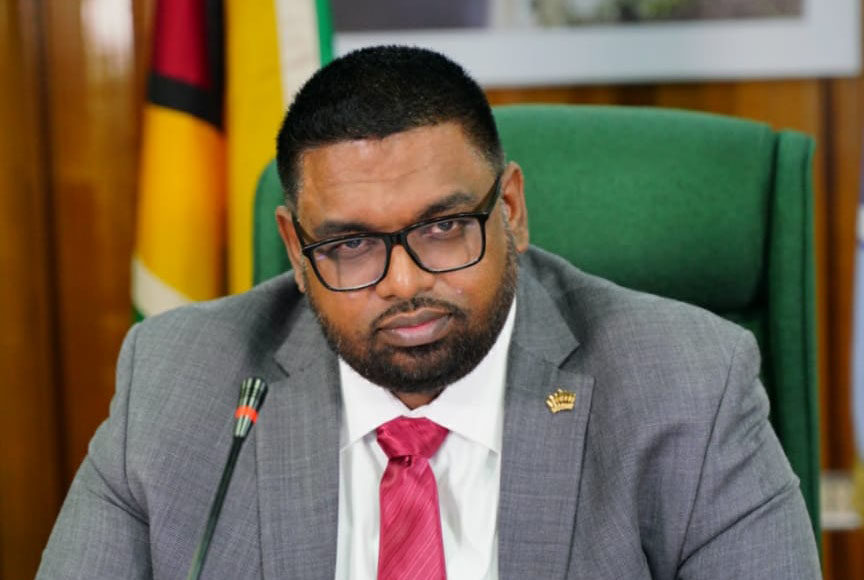In 2010, developed countries committed to jointly mobilise US$100 billion annually in climate finance by 2020 to support developing countries in reducing emissions and adapting to climate change. However, as the globe celebrated World Environment Day on Sunday, Guyana’s President, Dr. Mohamed Irfaan Ali, highlighted what he deemed unwillingness by the developed countries to stay true to their climate financing commitments. It is against this backdrop that Dr. Ali, in his World Environment Day speech, underscored the importance of Guyana exploring every revenue-generating activity to pursue climate adaptation and mitigation.
“We are far away from the minimal $100 billion pledge that the developed world would have made to fight climate change, adaptation and mitigation measures. If you look at adaptation alone, just for adaptation measures in the developing economies, it will cost between US$140B to US$300B annually if we are to successfully meet adaptation costs alone by 2030,” Mr. Ali said.
He continued, “This is a reality, with rising sea levels, with changes in climatic conditions. This is the cost; this is the investment that is required. That is why developing countries like Guyana must take a balanced approach; we must explore every possible revenue-generating activity so that we can have the resources necessary for adaptation and mitigation. But we must do so in a sustainable way.”
The Government of Guyana recognises the value and lucrativeness of its oil and gas industry, so despite calls from the anti-fossil fuel lobby for the nation to abandon the sector, the nation remains steadfast in its development. With current oil prices, Vice President Dr. Bharrat Jagdeo expects Guyana to be making upward of US$4B annually from approved oil developments. The funds from this sector can invest in social and economic transformation in Guyana, as well as diversify the non-oil economy – a policy the government has been keen to achieve.
Guyana oil bounty can fuel massive economic diversification, says US Ambassador | OilNOW
Meanwhile, President Ali pointed out that the world must not live in silos, but rather within the construct of the global reality. It is on this premise that he linked the importance of the new and expanded Low Carbon Development Strategy (LCDS) 2030. This national advancement plan, he noted, will position itself to be a global model on how to achieve sustainability in the management of the economy and environment, as well as remove inequality and disparity in society.
“What we want to do is to create a model. We cannot have One World if, in countries, we have divisions. We want to create a model as to what a One Guyana means and what One World should mean,” he said.
In the balanced approach that the world must attain, President Ali also spoke of the importance of achieving energy and food security.
“Our policy mix must be realistic. We have to pursue policy formulation that reflects this balance; policy formulation that ensures we build a country that is resilient to all of these threats whether it is climate, food or water. In our country, the sustainable pathway must be built in a resilient way to confront all these threats,” the Guyanese head of stated said.



